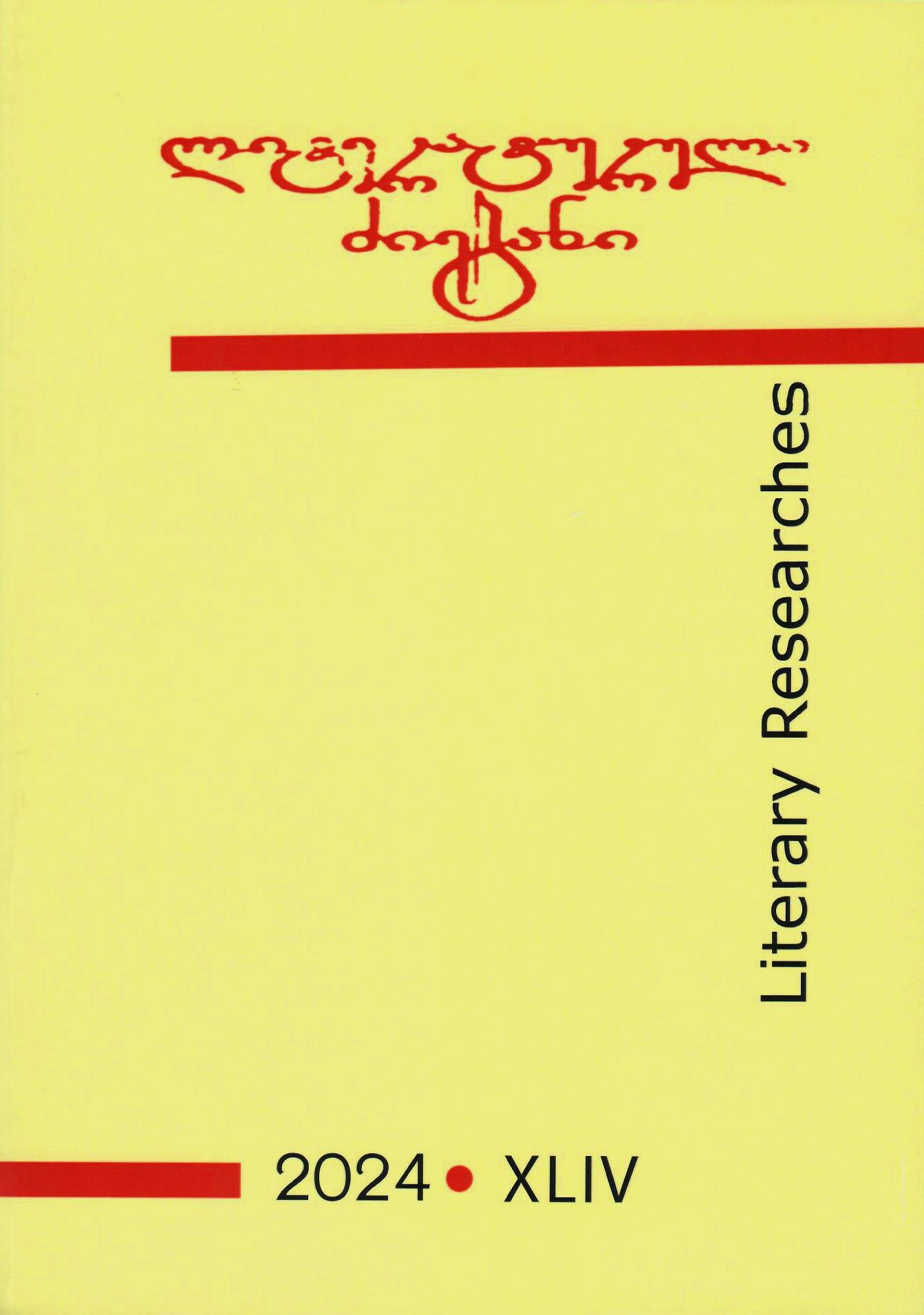Martyrdom as Beauty: The Martyrdom of St. Queen Ketevan by the Poetic Visions of Sulkhan-Saba Orbeliani and Dimitri Bagrationi
Published 2024-11-27
Keywords
- Queen Ketevan,
- King Teimuraz I,
- Sulkhan-Saba Orbeliani,
- Dimitri Bagrationi
How to Cite
Abstract
The poem about the martyrdom of his mother, Queen Ketevan, was written by King Teimuraz I (1589-1663) in 1627-1628. „The Torture and Book of Queen Ketevan“, in historical order, briefly describes the end of the life of the Queen of Kakheti – Saint Ketevan (1560-1624) and her torture, her dedication to the Christian faith.
In the poem, as a later addition, three stanzas written by Sulkhan-Saba Orbeliani are included, where Ketevan's torture is directly shown, but, unlike Teimuraz's original and mostly realistic narrative, Orbeliani presents the spiritual and aesthetic dimension of the queen's torture with special attention from the beginning. Such a vision is based on a deep understanding of the religious content of the event itself. Torture is described by the poet as the beautification of the martyr, his perfect adornment with the charms of bodily beauty. Torture loses its tragic content because it is imagined as a queen standing in front of a mirror and beautifying the face or body. From Orbeliani's Christian point of view, a person is beautiful when she or he, when presented before God, is spiritually beautiful. The most beautiful is a saint who sacrifices his body for the faithfulness of the Christian faith.
It is worth noting, primarily because of the poetic value of the text, another poem: „The Martyrdom of Saint Queen Ketevan“, which was published in 1819, and which was written by Dimitri Bagrationi (1746-1826), a Georgian poet, living in Russia. It is remarkable that the author, while writing his work, is clearly based on Teimuraz's text, but he widely expands and develops the vision of the base tab – the aesthetic dimension of torture, which necessarily implies seeing the spiritual beauty and spiritual victory of the martyr behind the suffering.
Dimitri Bagration’s writings express the poet's double vision: the earthly, visible reality acquires and carries a different meaning from the spiritual point of view, while it, and exactly what happens in the world, is evaluated accordingly from the heavenly height.
The poets, Sulkhan-Saba Orbeliani and Dimitri Orbeliani, firmly followed the direction indicated by Teimuraz and, following their own poetic vision, both impressively presented the beauty of torture.

